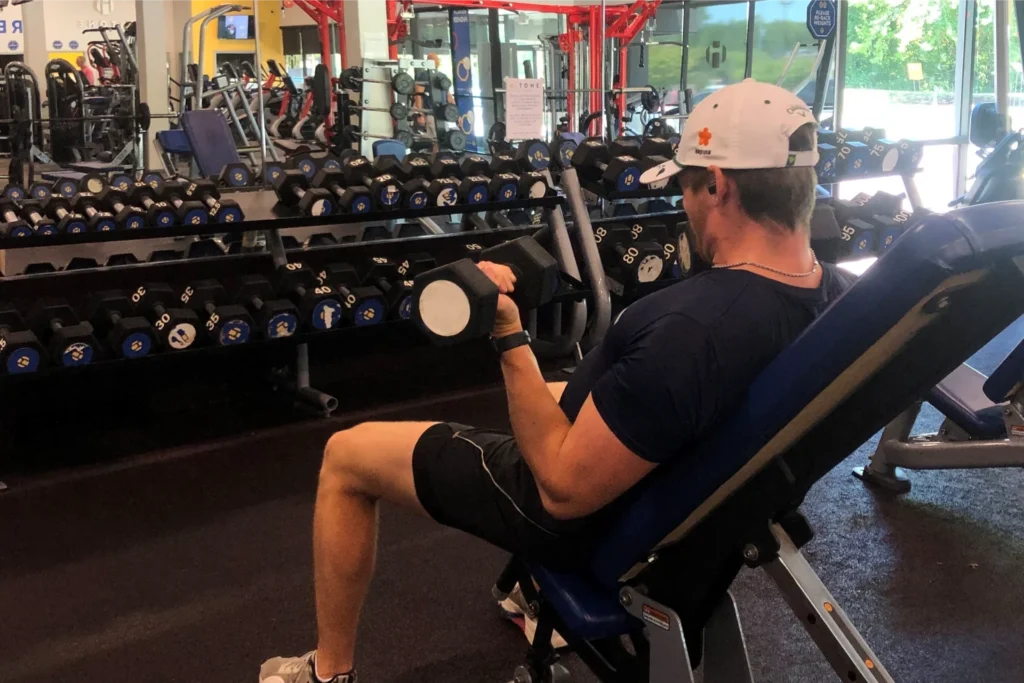Lifting heavier weights is commonly associated with building muscle more efficiently, but the reality is nuanced. The relationship between the weight you lift, how often you train, and how you perform your workouts can significantly impact your muscle-building results. Here’s a detailed look at whether lifting heavier weights can indeed help you build muscle faster.
Understanding muscle hypertrophy
Muscle hypertrophy is the process of increasing the size of muscle cells, which occurs as a result of strength training through mechanisms like mechanical tension, muscle damage, and metabolic stress.
Key mechanisms
- Mechanical tension: Achieved through lifting weights, this is the primary driver of muscle growth. Heavier weights can increase this tension, potentially leading to greater muscle gains.
- Muscle damage: When muscles are subjected to stress, such as lifting weights that are heavier than what the muscles are accustomed to, it causes small tears in muscle fibers, which then repair and grow stronger and larger.
- Metabolic stress: Caused by exercises that lead to the buildup of metabolites like lactate, this stress can also contribute to muscle growth.
Benefits of lifting heavier weights
Lifting heavier weights can be more effective in building muscle due to several reasons:
- Increased strength: Heavier weights enhance your strength more significantly, which can then allow you to perform more work over time, a key factor in long-term muscle growth.
- Efficiency: Heavier weights can achieve muscle fatigue quicker, which is often necessary for triggering hypertrophic adaptations.
- Stimulation of larger muscle fibers: Heavier lifting recruits fast-twitch muscle fibers, which have a greater potential for growth compared to slow-twitch fibers.
Considerations for optimal muscle growth
While lifting heavier weights can be beneficial, it’s not the only factor in muscle development. Here are other important considerations:
Progressive overload
Gradually increasing the weight you lift over time is crucial, regardless of the starting point. This principle applies not just to increasing weights but also to increasing volume or intensity.
Training volume
Finding the right balance between the weight lifted and the number of sets and repetitions is crucial. Too few repetitions with heavy weights might not be as effective as a moderate approach, depending on your fitness level and goals.
Recovery
Muscle growth occurs outside the gym during recovery periods. Ensuring enough rest and proper nutrition is as important as the workout itself.
Technique and safety
Lifting heavier weights should not compromise your form. Poor technique can lead to injuries, which can set back your progress. To make sure you’re having a good form that won’t put you at risk of injuries, get connected with some of our personal trainers in South Congaree.
Also, there are ways to build muscle without using weights.
Final thoughts
Lifting heavier weights can potentially help build muscle faster by increasing mechanical tension and stimulating larger muscle fibers. However, it’s essential to balance the intensity with proper technique, adequate recovery, and a well-rounded workout program that includes appropriate training volume and consistency. As always, personalizing your approach based on your body’s response and fitness goals will yield the best results.







